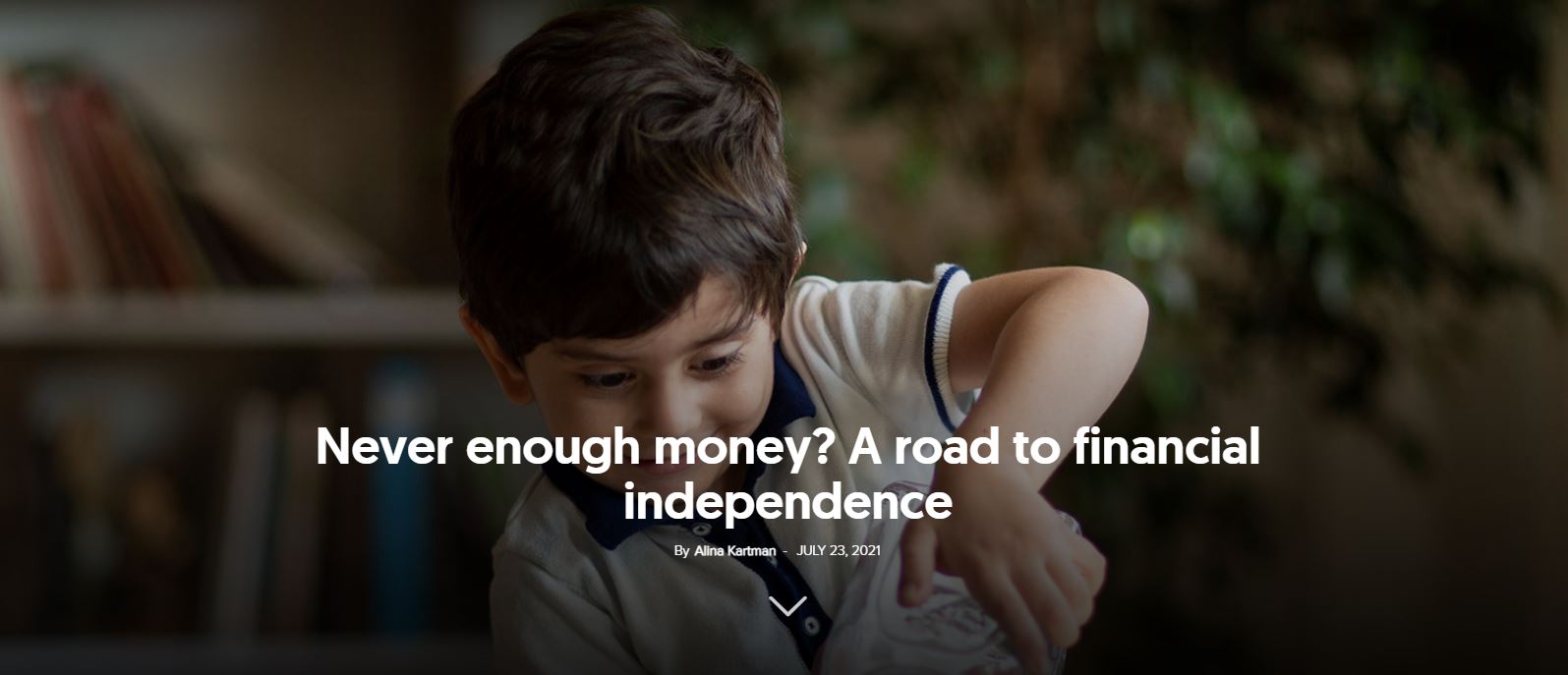Even if our “relationship with work” is often a complicated one, about which we do not always have the best feelings, we should remember that our jobs are more than just sources of income.
Waking up without an alarm. No obsessive checking of the time. No bus to catch on the run, no chase for the indispensable parking space. No panic. Just peace of mind without deadlines and the sweet breeze of free time.
Each of us has a different definition of the ideal vacation. Some go to the mountains, others to the sea. Some long for rest, others prefer an action-packed holiday with sporty activities. But there is a common denominator. It’s safe to say that detachment from everyday life and entering a world governed by a few simple and friendly rules attract us all equally.
Who doesn’t love to rest their body and soul after months of hard work, days that become indistinguishable from each other, and motivations driven by the word “must”?
Life feels different during a long-awaited vacation. The freedom enjoyed to the fullest, for at least four weeks a year, reminds us that we are more than our 9-to-5 jobs, more than our daily responsibilities, more than a cog in a frenzied machine. We are alive and sometimes we need to press the off button to remind ourselves of this.
Our relationship with work and well-being
How many of us don’t complain about returning to work after a vacation? Most of the time, the end of a holiday leaves us with a slightly bitter taste. Goodbye fine sand and unhurried mornings, welcome rigid meetings and overflowing tasks! Maybe only the privileged who work out of pure passion, having the “luck” to be paid for it, have gotten rid of the “syndrome”…
A statistic that has been widely circulated says that we spend about 90,000 hours of our lives working, which means that active work time quantitatively “humiliates” free time; it means that no matter how happy our exotic destinations make us, no dream vacation can compensate for any negative experience gained at an unsuitable workplace.
Even if the “relationship with work” is often a complicated one, about which we do not always have the best feelings, we should remember that our jobs are more than just sources of income; they give us more than just clothes, food and a solid roof over our heads.
Many people continue to work even when their financial situation allows them not to. To truly enjoy life, we need to be active and productive, improve our skills, and receive gratitude for our efforts. Work is essential to our well-being.
The situation is different when the danger of loss radically narrows our vision. There was a lot of talk about the fact that the pandemic taught us to re-evaluate the importance of ordinary things, including our relationships with free time and work, with our employer, with our colleagues, our duties, our plans for the future, and so on.
In crisis situations, our habitual reasons for dissatisfaction diminish and give way to self-preservation.
The phenomenon is justified: in crisis situations, our usual grievances reduce in proportion and give way to self-preservation. If we risk being unemployed in uncertain economic times, then professional standards are adjusted (in descending order), frustration tolerance increases, and compromise becomes imperative.
Even that toxic boss, who we used to criticise without hesitation, seems a little nicer, the schedule more acceptable and the salary more decent than it actually is. The thought that, after a well-deserved time of relaxation, a job we dislike awaits us, accentuates the bitter taste of returning to reality.
Looking for the right future
The survival mode activated in times of crisis must not permanently characterise our existence. We should not confuse the exception of the game with its basic rules.
When I recently told an acquaintance that I was preparing for a series of exams because I wanted to change jobs, they instantly replied, “That’s what you’ve been wanting for years!” It made me wonder: is my stubbornness to tick off as many of the criteria on the shortlist of a job that is not even ideal, but is satisfactory in an authentic and real way, a utopia? Or do I just have to settle for less?
Over time, I’ve met too few people who are at peace with what they do. I can count on my fingers those who are enthusiastic. Most employees feel that life really starts only after work. Keeping an eye on the clock in anticipation of the most coveted event of the working day, its end, reigns supreme in the organisational culture of many institutions and companies.
Working with pleasure
Free time and the activities beneficial to the soul, not marked as mandatory on any job description, are the elements that help us to recalibrate physically and mentally. Beyond them, however, work plays a crucial role in the meaning of life, and our formation as human beings. We cannot truly enjoy life by working in an area that, for various reasons, we do not like, does not represent us, or does not give us real satisfaction.
I had the opportunity to talk to many elderly people who were eager to share their past. Their experience has shown me that in later years, the people who look back with pleasure are those who are happy with their family and professional life—people who have been surrounded by love at home and have had consistent satisfaction at work, regardless of position, earnings or status. They were among those who, whether they had painted walls or sewn clothes, performed brain surgery or designed buildings, found meaning and significance in their work.
Free time and the activities beneficial to the soul, not marked as mandatory on any job description, are the elements that help us to recalibrate physically and mentally.
What can we do if we do not contribute enough to the possible changes in our sphere of influence, if we have misplaced our vocation, or if we are not compatible with the way the organisation works, with its vision, or with the people who work for it? What if we simply want something else? The lessons so far have taught me that we owe it to ourselves to aspire to positive change professionally, to work for it, and to turn the present into a launching pad necessary for progress.
In case of inadequacy, we could tolerate the shortcomings, taking the associated risks (disappointment, stress, settling, etc.), or, in the absence of good results where we are, we could move to places that can meet our true needs, that ensure a stable balance between professional and personal life, between free time and work.
Regardless of the choice, one thing is certain: when it comes to work, compromises create voids that are difficult to fill even with the best holidays in the world.
Genia Ruscu starts from the premise that, no matter how uniquely and efficiently we use our free time for relaxation, we cannot really enjoy life if we do not like what we do every day, professionally.




















